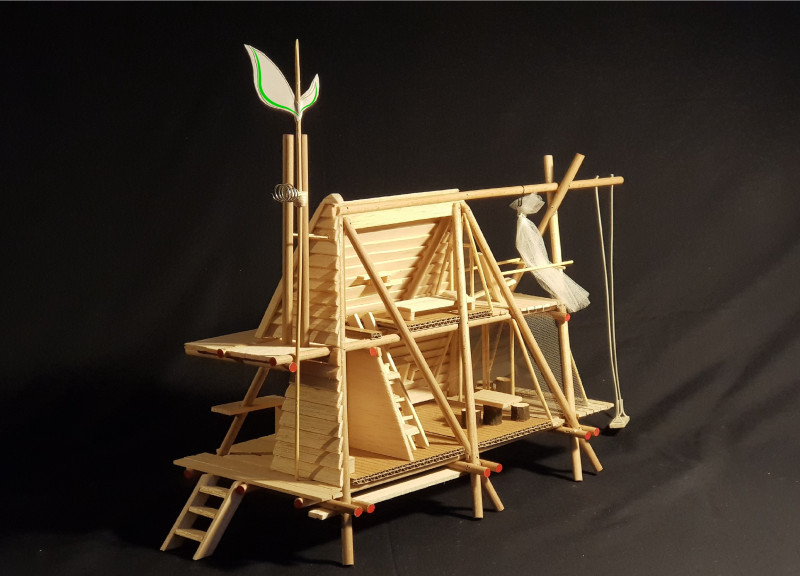5 key facts about this project
The Silent Meditation Forest Cabins is a collection of retreat spaces designed for quiet reflection and contemplation in a forest environment. Located away from busy urban life, the cabins aim to create a calming atmosphere for meditation. The overall design emphasizes a strong connection to nature while fostering a sense of peace within the user.
Geometry and Structure
The structure of the cabins is based on geometric shapes, particularly equilateral triangles, which are used in both longitudinal and transverse formats. This design choice provides stability and contributes to the project’s balance. By using sloped walls and specific angles, the architecture harmonizes with its surroundings, enhancing both its visual appeal and functionality.
Spatial Arrangement
Inside, the layout is carefully organized to promote comfort and practicality. Each room is arranged to support various activities, allowing spaces for meditation to coexist with areas for personal reflection or group engagement. This intentional organization of space makes it easy for occupants to move freely and enjoy different aspects of their stay.
Materiality
Larch wood serves as the main building material, enabling the cabins to blend with the natural setting. The properties of larch wood contribute to the overall sustainability of the design while providing warmth to the interior. Furthermore, the use of rock wool insulation and waterproof sheathing ensures that the cabins remain comfortable and energy-efficient, addressing both functionality and environmental considerations.
Sustainable Features
Incorporating renewable energy is a key aspect of the design. A small wind generator is installed to charge batteries used for minimal night lighting. This feature reflects a commitment to reducing environmental impact while providing essential amenities.
One notable detail is the outdoor work table, which encourages creativity without disturbing the quiet atmosphere. Its placement invites users to engage in craft and reflection, bridging the indoor and outdoor experiences naturally.


























